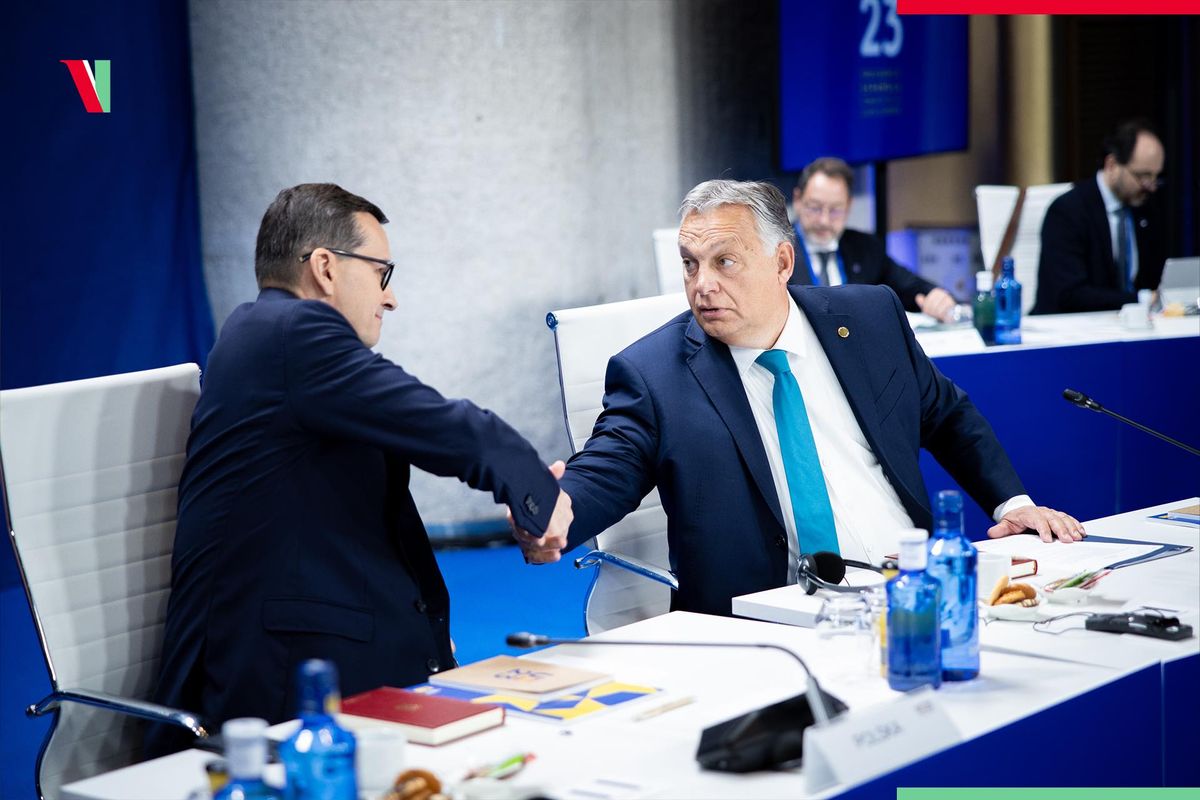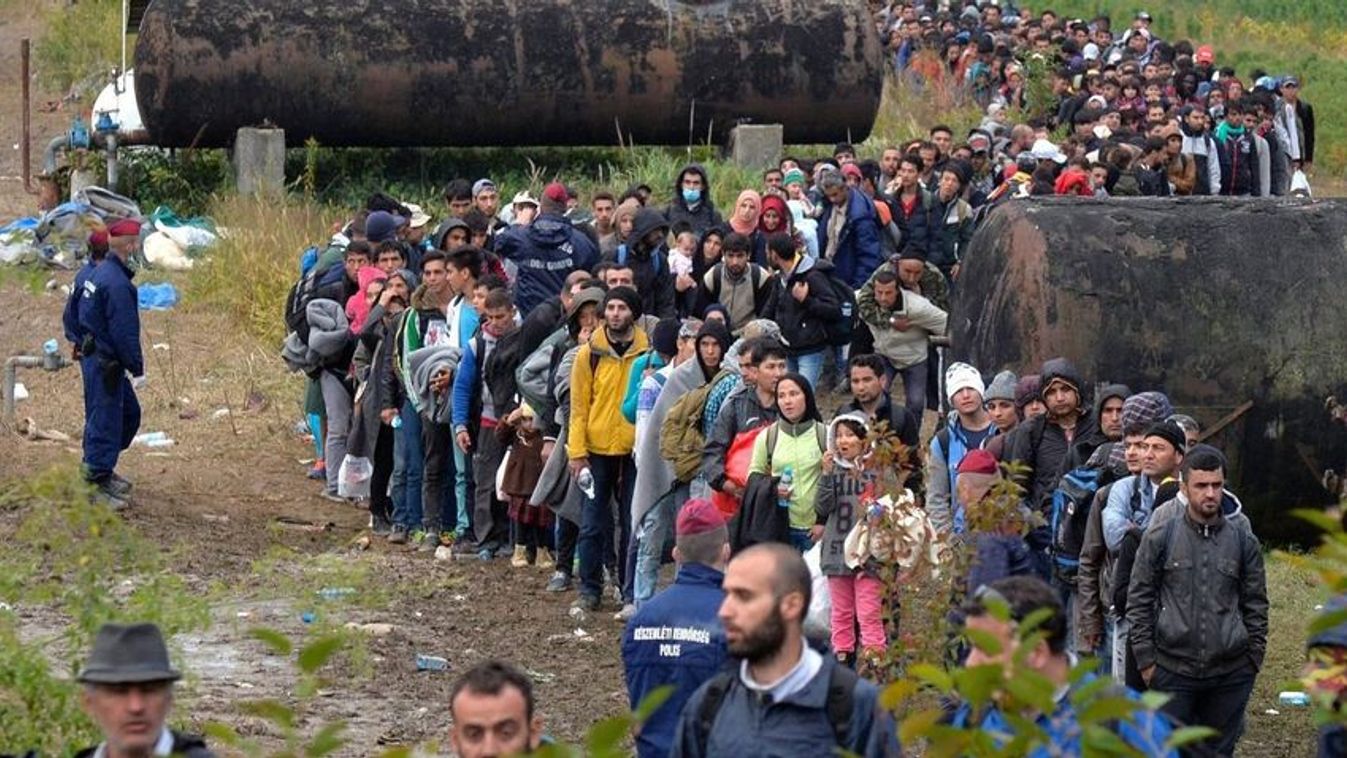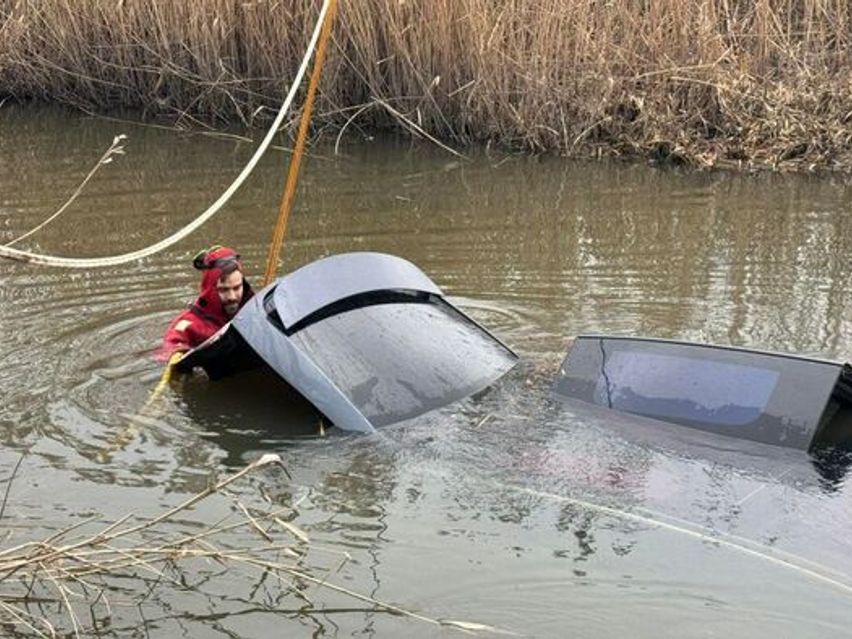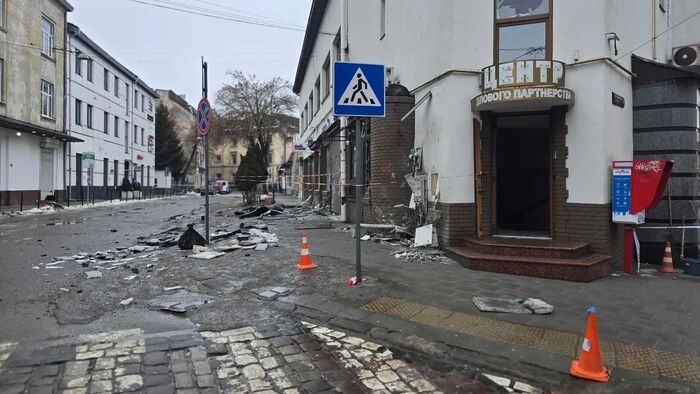"The adoption of the migration pact will clearly serve as an incentive for those who want to leave: it is another letter of invitation from Europe to immigrants, which also means more deaths. The greater the number of people embarking on the journey, the greater the number of people drowning in the Mediterranean," Mark Vargha, senior analyst at the Migration Research Institute, told Magyar Nemzet when asked about the new migration pact's crisis regulation adopted in Spain a few days ago.

According to information from Spain, which currently holds the rotating presidency of the Council of the European Union, the ambassadors of the 27 Member States have reached an agreement on the emergency provisions that are part of the new migration pact. Hungary and Poland voted against the provision, while Austria, the Czech Republic and Slovakia abstained.
What do the provisions regulate?
The emergency provisions adopted will regulate cases of large arrivals of irregular migrants similar to the 2015-2016 migration crisis, as well as the rules to be followed in cases of foreign influence attempts similar to the 2021 Belarusian migration crisis.
The draft allows affected states to detain asylum seekers at the border for the duration of the asylum procedure (maximum 20 weeks).
It also provides for the possibility of detaining rejected asylum seekers for between 12 and 20 weeks until their return procedure is completed. The provision provides that, in the event of a crisis situation in a member state, the affected state may request a solidarity contribution from the other member states, which may take three forms:
- The relocation of asylum seekers and those under international protection from the affected member state to the contributing member states.
- Conducting the asylum procedures for asylum applications lodged in the affected member state.
- Financial support or alternative solidarity options. Solidarity contribution pledges are approved by the Council.
Message to migrants: "Come, because there will be a place for you in the EU"
"According to the capacity provision, there must be a capacity to receive 30,000 asylum applications at any given time in the EU. This means that for migrants or people smugglers, the EU can process 30,000 asylum applications at a time, that's a pull factor. On the other hand, there is also a 30,000 figure in the Solidarity Regulation for distribution. All this sends a message to people in Africa and Asia: 'Come, because there will be a place for you in the EU'," said Mark Vargha, adding that
30,000 is a ridiculous number in light of the fact that 330,000 people arrived in Europe this year alone.
The Migration Research Institute also considers the processing of asylum applications in 20 weeks an impossibility. While the length of procedures varies from one member state to another, researchers say that no country's administration will be able to cope with the caseload of such a large influx. The duration of processing procedures could take up to twice as long.
The new provisions are currently not grounded in reality, Mark Vargha stressed.
Anyone who does not accept the migrants allocated to them will have to pay a fine of €22,000 for each migrant or provide alternative solidarity equaling the value of the fine. The analyst said that if Hungary does not accept asylum seekers and cannot defend its case in the European Court of Justice, the EU will impose sanctions. The government has opposed this allocation mechanism from the start, citing as a political tool Hungary's referendum in 2016, in which more than 98 percent of valid votes cast answered "no" to the relevant question. The question now is what the government can come up with to oppose compulsory resettlement and how it can strengthen its position. At the moment, it looks as if the new migration pact will be adopted by April at the latest," the analyst concluded.
Cover photo: Illustration (Source: Facebook/ Bence Retvari)























Szóljon hozzá!
Jelenleg csak a hozzászólások egy kis részét látja. Hozzászóláshoz és a további kommentek megtekintéséhez lépjen be, vagy regisztráljon!